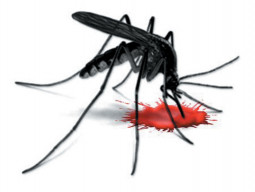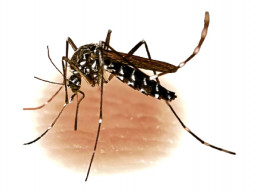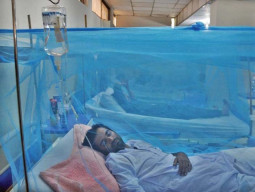1726571852-0/cover-(15)1726571852-0.png)
Hospitals across Karachi and other parts of Sindh are struggling to manage a surge in patients suffering from mosquito-borne illnesses, including dengue, chikungunya, and malaria.
Medical experts are sounding the alarm over the rising number of cases, blaming insufficient government measures for water drainage and fumigation after recent rains.
According to doctors, dengue and chikungunya cases have skyrocketed in Karachi, with malaria more prevalent in rural areas of Sindh.
Emergency rooms in major hospitals are filled with patients suffering from severe symptoms like high fever, joint pain, and low platelet counts, particularly in dengue cases.
Dr. Imran Sarwar, head of emergency services at Civil Hospital, noted that daily admissions of dengue, malaria, and chikungunya patients are increasing, with chikungunya cases rising faster this year.
Medical professionals have also reported platelet shortages as demand outstrips supply.
Citizens have expressed dissatisfaction with the government’s fumigation efforts, claiming that mosquito control measures are more often on paper than in practice, leaving urban and rural areas vulnerable to outbreaks.
Earlier this month, there has been a visible surge in mosquito-borne diseases, especially dengue and malaria, across Sindh due to inadequate drainage and poor sanitation, along with open water storage in homes, as monsoon rains continue to lash the province.
According to official figures, dengue cases have multiplied by around 135% during the first seven months of this year compared to 2023.
However, the disease prevalence remains considerably lower than the year 2022.
As of now, Sindh has reported 1,167 dengue cases, with 1,022 of these in Karachi alone. Similarly, malaria cases have reached 149,102, with 1,074 reported in Karachi.
District East of the metropolitan city has reported the highest number of dengue cases at 329, while District Malir has the highest malaria count with 543 cases.
Only one death has been attributed to dengue in Karachi so far this year, while no malaria-related fatalities have been reported in the province.
Experts attribute the increase in cases to ineffective drainage systems, open water storages in homes, and a lack of disinfectant spraying.
Climate change is exacerbating mosquito proliferation, and a lack of public awareness is also a factor.



1731916090-0/sabrina-(3)1731916090-0-165x106.webp)
















COMMENTS
Comments are moderated and generally will be posted if they are on-topic and not abusive.
For more information, please see our Comments FAQ